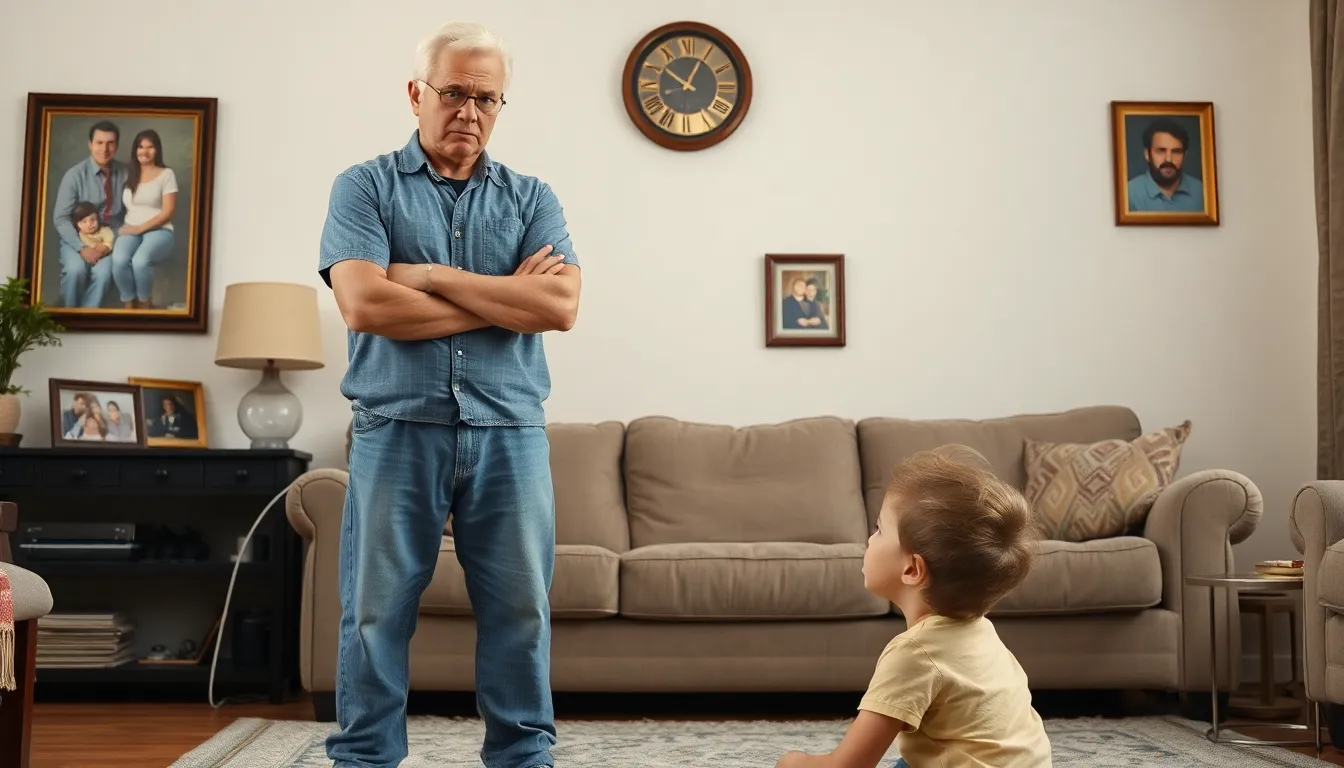Table of Contents
ToggleParenting isn’t one-size-fits-all, and anyone who’s ever tried to assemble IKEA furniture knows that! Just as there are different ways to tackle a flat-pack, there are four distinct parenting styles that shape how children grow and thrive. From the nurturing helicopter parents hovering overhead to the free-range adventurers letting their kids roam wild, each style brings its own unique flair to the family dynamic.
Overview of 4 Parenting Styles
Parenting styles significantly shape children’s emotional and social development. Authoritative parents balance responsiveness with demand, promoting independence while setting clear expectations. This style often results in children who display confidence, social competence, and emotional resilience.
Permissive parents prioritize emotional connection over discipline. While nurturing, this approach may lead to children struggling with authority and self-regulation. Kids raised in permissive environments might exhibit creativity but face challenges in structured settings.
Authoritarian parents enforce strict rules and demand obedience, often valuing discipline over warmth. Although this approach can create structured environments, it may hinder children’s self-esteem and problem-solving skills. As a result, children might experience anxiety or rebellion against authority figures later in life.
Free-range parents embrace independence and encourage exploration. By allowing children to make choices, this style fosters self-reliance and decision-making skills. However, the lack of oversight might lead to risks children may not be equipped to handle.
Each parenting style inherently influences how children interact with their environment and develop critical life skills. Understanding these styles aids in evaluating one’s approach to parenting, fostering healthier family dynamics and preparing children for future challenges.
Authoritarian Parenting Style

Authoritarian parenting focuses on high demands and low responsiveness. This style emphasizes obedience and discipline over personal freedom.
Characteristics of Authoritarian Parents
Authoritarian parents enforce strict rules and expect compliance without question. High expectations drive their approach, while limited emotional support defines interactions. They often use punishment to control behavior, resulting in a rigid family environment. Communication tends to be one-sided, with minimal input allowed from children. These parents prioritize obedience over independence, leading to a lack of flexibility in parenting methods.
Effects on Children
Children raised by authoritarian parents often struggle with self-esteem and independence. They may exhibit anxiety because of the high expectations set by their parents. Communication difficulties arise, making it hard to express feelings or opinions. These children might lack problem-solving skills due to not having opportunities to make decisions. Behavioral issues, including rebellion against authority, can develop in response to strict control.
Permissive Parenting Style
Permissive parenting emphasizes emotional connection over discipline. This approach often fosters creativity and self-expression in children, allowing them to explore their interests freely.
Characteristics of Permissive Parents
Permissive parents display high warmth and low demand. They often avoid setting strict rules, granting children significant freedom to make choices. These parents typically encourage open dialogues, creating safe spaces for children to express thoughts and feelings. Nurturing affection plays a crucial role in their approach, so they’ll prioritize bonding over behavioral limitations. Independence is celebrated, with parents acting more like friends than authority figures. Decision-making autonomy becomes a key characteristic, leading to a relaxed household atmosphere.
Effects on Children
Children raised by permissive parents often develop strong creativity and self-esteem. They may also struggle with self-regulation and authority in challenging situations. A lack of consistent rules can hinder their ability to respond to boundaries. Consequently, some children might face difficulties in managing emotions or following instructions. Having been given ample freedom can result in impulsivity, which may create challenges in structured environments like schools. Overall, this parenting style supports exploration while potentially creating hurdles in self-discipline and responsibility.
Authoritative Parenting Style
Authoritative parenting blends responsiveness with demands, leading to balanced family relationships. This style fosters independence while establishing clear expectations.
Characteristics of Authoritative Parents
Authoritative parents exhibit warmth and support, guiding children with structure and clear rules. They listen to their children’s opinions, encouraging open communication. Consistent discipline is part of their approach, reinforcing desired behaviors while allowing for independence. They prioritize emotional connection, showing empathy and understanding in interactions. Setting realistic expectations, they support children in achieving their goals while acknowledging limitations.
Effects on Children
Children raised by authoritative parents often develop strong self-esteem and communication skills. They tend to exhibit high levels of self-reliance and social competence. Research shows these children generally perform well academically and possess better emotional regulation. They’re more likely to navigate challenges effectively due to the problem-solving skills cultivated in their upbringing. In social settings, they display warmth and cooperation, forming healthy relationships with peers and adults. Overall, authoritative parenting contributes to well-adjusted individuals capable of thriving in various life situations.
Uninvolved Parenting Style
Uninvolved parenting features a distinct absence of both emotional support and structure. This style often results from parents being preoccupied with their own lives, leading to minimal engagement with their children.
Characteristics of Uninvolved Parents
Uninvolved parents exhibit low levels of warmth and high detachment. They often prioritize personal issues over their child’s needs. Limited supervision and minimal guidance characterize their approach. Parents may be financially stable yet emotionally unavailable, causing children to feel neglected. Few, if any, rules or expectations are set, leading to an unpredictable home environment. These parents rarely participate in their children’s activities or make decisions.
Effects on Children
Children raised by uninvolved parents often struggle with emotional regulation and self-esteem. They frequently exhibit behavioral problems due to lack of structure and boundaries. Academic performance may decline as these children lack motivation and support. Social skills often suffer since they do not receive guidance in navigating relationships. Risky behaviors may become common as children search for attention and validation. Overall, uninvolved parenting can lead to long-term emotional issues and difficulties in adult relationships.
Understanding the various parenting styles can empower caregivers to make informed decisions about their approach. Each style carries its own set of strengths and challenges that shape children’s emotional and social development.
By recognizing the impact of authoritative, permissive, authoritarian, free-range, and uninvolved parenting, individuals can better navigate their parenting journey. Embracing elements of the authoritative style often leads to healthier family dynamics and more resilient children.
Ultimately, the goal is to foster an environment that encourages growth and prepares children to face life’s challenges with confidence and independence.




